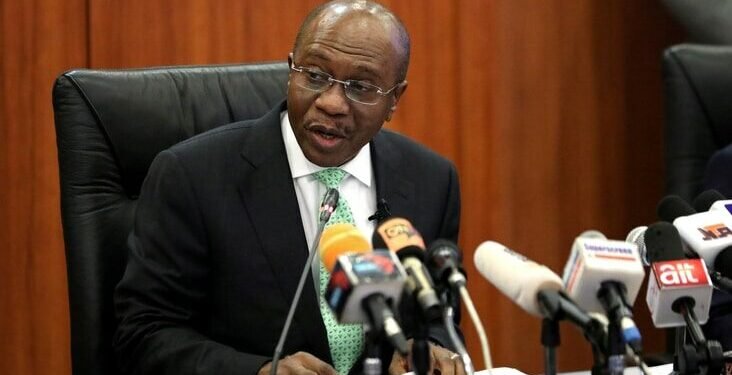The Central Bank of Nigeria (CBN) Monetary Policy Committee (MPC) in a meeting held on Tuesday voted to reduce the Monetary Policy Rate (MPR) to 11.5% from 12.5%.
The committee also voted to adjust the asymmetric corridor down to +100/-700 basis points around the MPR.
CBN Governor Godwin Emefiele disclosed this while reading the communique at the end of the MPC meeting.
According to the bank the rise in the inflation rate in the country is due to structural policies rather than as a result of monetary policies.
The apex bank also in a tweet on Tuesday wrote “CBN MPC votes to reduce MPR from 12.5 % to 11.5%”
CBN MPC votes to reduce MPR from 12.5 % to 11.5%
— Central Bank of Nigeria (@cenbank) September 22, 2020
Summary of MPC decisions
- Reduce the MPR by 100 basis points from 12.5 to 11.5 percent;
- Adjust the asymmetric corridor from +200/-500 basis points to
+100/-700 basis points around the MPR; - Retain the CRR at 27.5 per cent; and
- Retain the Liquidity Ratio at 30 per cent.
What is the impact of reducing MPR?
Reducing the MPR rate tends to make lending cheaper and helps to further stimulate the economy since the MPR is the interest rate at which CBN lends to the commercial banks and also the benchmark against which other lending rates in the economy are pegged.
Recall that the CBN recently reviewed the interest rate payable on savings deposits by financial institutions to a minimum 10% of MPR from previous 30% of MPR.
At the time the CBN gave this directive, the MPR was 12.5% and most banks informed their customers that following the changes in the CBN Guide to Banks, they would be revising interest rates on savings account deposits t0 1.25%.
With the MPR now at 11.5%, it is expected that banks will likely reduce the interest on deposits in savings accounts to 1.15%.
Written by;
Ifunanya Ikueze
























































